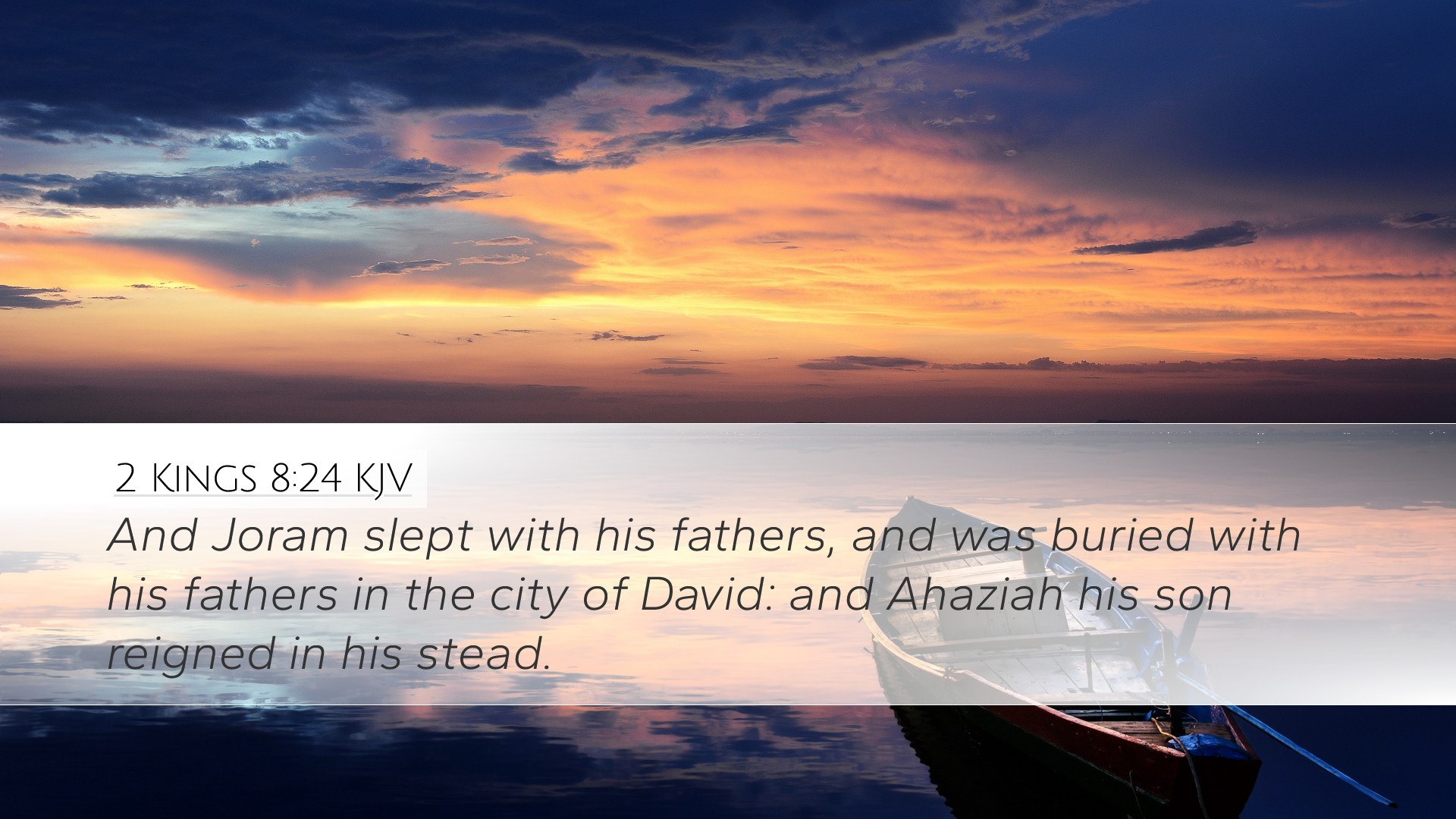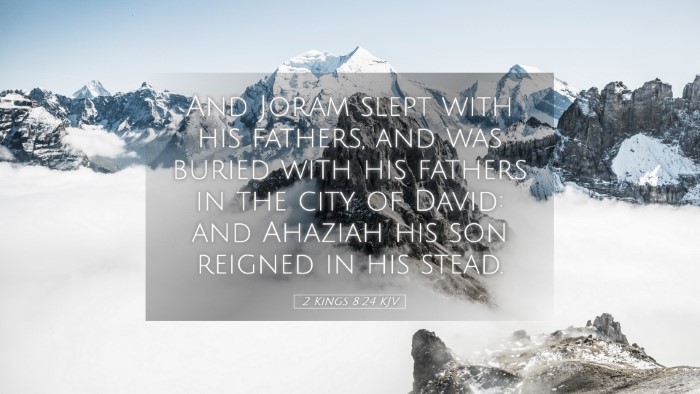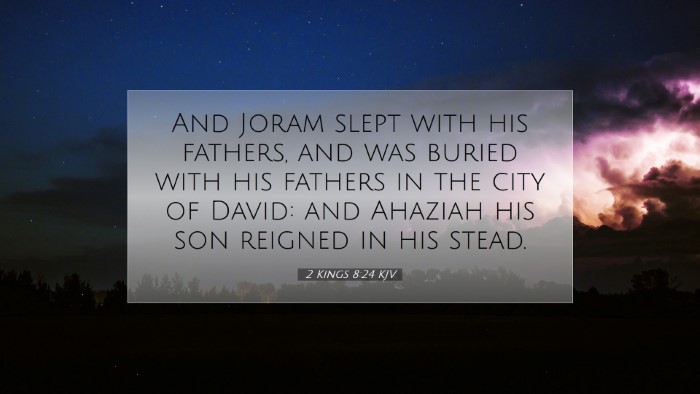Commentary on 2 Kings 8:24
2 Kings 8:24 reads: “And Joram slept with his fathers, and was buried with his fathers in the city of David: and Ahaziah his son reigned in his stead.” This verse marks a significant transition in the history of Israel and Judah, encapsulating themes of royal succession, divine sovereignty, and the continuity of God's purposes amidst human actions. In this commentary, we draw insights from renowned commentators such as Matthew Henry, Albert Barnes, and Adam Clarke.
Contextual Background
The surrounding chapters provide a backdrop for understanding the reign of Joram and the socio-political climate of Israel. The interplay between the kingdoms of Israel and Judah during this period reveals a complex relationship marked by rivalry and occasional alliance.
Insights from Matthew Henry
Henry emphasizes the inevitability of death and the transient nature of earthly power. He states:
- Death as Equalizer: Joram’s death serves as a reminder that all men, regardless of their status, ultimately succumb to death. This underscores the biblical truth that life is fleeting and that earthly authority is temporary.
- Divine Judgment: Henry reflects on the judgment pronounced upon Joram for his evil deeds. The verse signifies not only his physical death but also spiritual death, estrangement from God due to his wicked actions.
Insights from Albert Barnes
Barnes’ commentary illuminates the political implications of Joram's reign and subsequent death:
- Political Turmoil: The transition from Joram to Ahaziah represents instability. Ahaziah’s ascension highlights the ongoing struggle within the Davidic line against external adversaries and internal weaknesses.
- Legacy of Evil: Barnes notes that Joram's legacy is one of moral corruption and idolatry, setting a precedent for his son Ahaziah, who continues in the same evil path. This raises questions about familial influence in leadership.
Insights from Adam Clarke
Clarke provides theological reflections on the implications of Joram's reign and the consequent shifts in leadership:
- Human Agency and Divine Sovereignty: Clarke stresses the belief that while Joram exercised his will, God was sovereignly guiding the course of events, using even the wicked for His purposes. His death paves the way for the continuation of God’s plan for Israel.
- Ahaziah’s Character and Reign: He also remarks on the character of Ahaziah, interpreting his immediate association with his parents’ sinful ways. This indicates a cycle of disobedience that may persist within the monarchy, ultimately affecting the fate of Israel.
Thematic Reflections
This brief verse encompasses several key themes relevant for theological reflection:
- Succession and Continuity: The passage points to the continuity of leadership, encouraging exploration of how heredity impacts governance and divine purpose.
- Divine Justice and Mercy: Joram’s death is not just an end but also a testament to divine justice. Despite the evil of kings, God's mercy continues to be available for those who turn back to Him.
- Influence of Leadership on Followers: The consequences of Joram’s actions extend into the next generation, suggesting a study on the role of leaders in shaping community values and faith.
Practical Applications
For pastors, theologians, and students, this verse presents practical lessons to consider:
- The Weight of Leadership: Leaders must understand the profound impact of their decisions on future generations; a call to lead with integrity and faithfulness.
- Accountability to God: Each leader faces accountability before God; therefore, a leader’s life should be marked by righteousness, honoring the sovereign will of God.
- Hope amidst Uncertainty: In times of political and moral uncertainty, believers can find hope in God's sovereignty and presence, knowing that He remains in control even amidst human failings.
Conclusion
The examination of 2 Kings 8:24 reveals profound truths about the nature of leadership, divine justice, and the continuity of God's plans. Drawing from the insights of esteemed commentators enhances our understanding, urging us to consider the lessons about life, death, influence, and divine providence. As we delve deeper into Scripture, let us be mindful of the implications of our actions, the legacy we leave, and the hope we have through God’s enduring promise.


